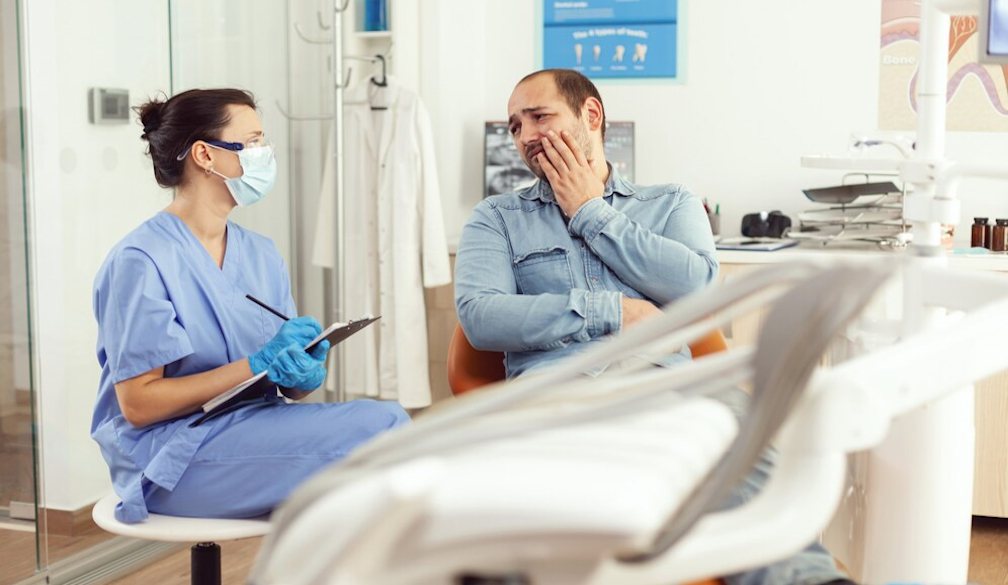How to Handle Dental Emergencies: Emergency Dentist Guide

Dental emergencies can be both painful and alarming, often requiring immediate attention to prevent further complications. Knowing how to handle these situations effectively can make a significant difference in preserving your oral health and alleviating discomfort. This guide will help you understand common dental emergencies and the appropriate steps to take when they occur. If you're in Melbourne, having access to an emergency dentist is crucial. Here's how to handle various dental emergencies effectively.
1. Toothache
A toothache can signal various dental issues such as cavities, infections, or gum disease. Here's what to do if you experience a toothache:
- Rinse Your Mouth: Use warm water to thoroughly rinse your mouth. This can help remove any debris that might be causing irritation.
- Floss Gently: Carefully floss to remove any food particles trapped between your teeth.
- Cold Compress: Apply a cold compress to the outside of your cheek to reduce swelling and numb the pain.
- Avoid Painkillers on Gums: Do not apply painkillers directly to your gums as they can burn the tissue. Instead, take them orally if necessary.
If the pain persists, it's important to contact an emergency dentist. In Melbourne, several clinics offer emergency services to address toothaches promptly.
2. Chipped or Broken Tooth
A chipped or broken tooth can result from trauma, biting hard foods, or accidents. Here's how to manage it:
- Save the Pieces: Rinse the broken pieces and keep them in a clean container.
- Rinse Your Mouth: Use warm water to clean your mouth.
- Apply Gauze: If there is bleeding, apply gauze to the affected area for about 10 minutes or until the bleeding stops.
- Cold Compress: Apply a cold compress to the outside of your cheek to reduce swelling and pain.
Visit an emergency dentist as soon as possible. In Melbourne, emergency dentists can provide quick repairs to restore your tooth's appearance and function.
3. Knocked-Out Tooth
A knocked-out tooth is one of the most urgent dental emergencies. Acting quickly can save the tooth:
- Handle the Tooth Carefully: Hold the tooth by the crown, not the root, to avoid damaging the root cells.
- Rinse Gently: If the tooth is dirty, rinse it with water. Do not scrub or remove any attached tissue fragments.
- Reinsert if Possible: Try to place the tooth back into its socket without forcing it. Hold it in place with a clean cloth or gauze.
- Keep Moist: If reinsertion isn’t possible, keep the tooth moist. Place it in a container of milk or a tooth preservation solution. Alternatively, you can keep it inside your mouth, between your cheek and gum.
Seek immediate dental care. Emergency dentist in Melbourne are equipped to handle such situations and increase the chances of saving the tooth.
4. Lost Filling or Crown
Losing a filling or crown leaves the affected tooth vulnerable. Here’s what to do:
- Keep the Filling or Crown: If you find the lost filling or crown, keep it in a safe place.
- Temporary Protection: Use over-the-counter dental cement or a piece of sugarless gum to cover the exposed tooth, protecting it until you see a dentist.
Make an appointment with an emergency dentist. In Melbourne, professionals can quickly replace lost fillings or crowns to prevent further damage.
5. Abscess
An abscess is a severe infection that occurs around the root of a tooth or in the space between the teeth and gums. It can cause significant pain and swelling:
- Rinse with Saltwater: Rinse your mouth with a solution of saltwater to help draw out the pus and relieve discomfort.
- Avoid Pressing on the Abscess: Do not press or poke the abscess, as this can spread the infection.
Contact an emergency dentist immediately. An abscess can lead to serious complications if not treated promptly. Emergency dentists in Melbourne can provide the necessary treatment to drain the abscess and eliminate the infection.
6. Soft Tissue Injuries
Injuries to the soft tissues of the mouth, such as the tongue, cheeks, gums, or lips, can result in bleeding:
- Clean the Area: Rinse your mouth with a mild saltwater solution.
- Apply Pressure: Use a clean cloth or gauze to apply gentle pressure to the bleeding area.
- Cold Compress: Apply a cold compress to the outside of your mouth to reduce swelling and control bleeding.
If the bleeding doesn’t stop after 15 minutes or if the injury is severe, seek immediate dental care. Emergency dentists in Melbourne can assess and treat soft tissue injuries effectively.
Conclusion
Knowing how to handle dental emergencies can help you stay calm and take the right steps to mitigate damage and pain. Whether you’re dealing with a toothache, a knocked-out tooth, or a lost filling, prompt action is crucial. In Melbourne, having access to an emergency dentist ensures you receive timely and professional care for any dental emergency. Always keep the contact information of a reliable emergency dentist handy to ensure you’re prepared for any dental crisis.

